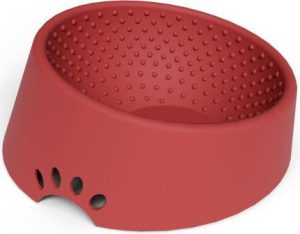In this section, we will explore whether dogs can eat melon safely. We will discuss the compatibility of dogs with melon and other safe fruits for dogs to enjoy as treats.
Key Takeaways:
- It’s important to understand a dog’s dietary needs before introducing new foods.
- While melon can be safe for dogs, not all fruits are suitable for their consumption.
- Melon is a hydrating and nutritious option for dogs, but portion control is key.
- Consult with your veterinarian before implementing any changes to your dog’s diet.
- Every dog is unique, so monitor their compatibility with melon and watch for any adverse reactions.
Understanding a Dog’s Diet
Before exploring if dogs can eat melon, it is important to understand their dietary needs. Dogs require a balanced diet that includes protein, carbohydrates, fats, and essential vitamins and minerals. A well-balanced diet is crucial for their overall health and well-being.
Protein is essential for maintaining muscle mass and supporting healthy growth and development in dogs. Good sources of protein for dogs include lean meats like chicken, turkey, and beef, as well as fish and plant-based proteins like lentils and quinoa.
Carbohydrates provide dogs with energy. Whole grains like brown rice and oatmeal, as well as vegetables like sweet potatoes and carrots, are great sources of carbohydrates for dogs.
Fats are an important part of a dog’s diet and help support their skin and coat health. Healthy fats can be found in foods like fish oils, flaxseeds, and coconuts.
In addition to protein, carbohydrates, and fats, dogs also require essential vitamins and minerals to support their overall health. These include vitamins A, D, E, and K, as well as minerals like calcium, phosphorus, and potassium.
Now that we understand a dog’s dietary needs, let’s explore how melon fits into their diet.
Safe Fruits for Dogs
When it comes to offering fruits to your furry friend, it’s essential to know which ones are safe and healthy for dogs. Below is a list of dog-friendly fruits that you can share with your canine companion:
- Apples
- Bananas
- Blueberries
- Cantaloupe
- Strawberries
- Watermelon
These fruits are not only delicious but also provide various vitamins, minerals, and antioxidants that can benefit your dog’s overall health. However, remember to introduce these fruits gradually and in moderation, as too much of any new food can upset your dog’s stomach.
“Our furry friend’s well-being is our top priority, so it’s vital to ensure we only offer safe and dog-approved treats like these fruits to keep them healthy and happy.”
Nutritional Value of Melon for Dogs
Melon is not only a hydrating fruit, but it also boasts an impressive array of nutrients that can benefit our furry friends. Let’s take a closer look at the nutritional value of melon for dogs and discover how it can contribute to their overall well-being.
When it comes to vitamins, melon is a great source of vitamin A, which supports healthy vision and immunity. It also contains vitamin C, an essential antioxidant that aids in collagen production and boosts the immune system. Additionally, melon provides small amounts of vitamins B6 and K, which play crucial roles in maintaining optimal health.
Minerals are another important component of a dog’s diet, and melon delivers on this front as well. This fruit contains potassium, a mineral that helps regulate blood pressure and supports heart health. It also offers a decent amount of magnesium, which promotes muscle function and assists in energy production.
One of the standout features of melon is its high water content, making it an excellent choice for keeping dogs hydrated, especially during hot summer months. Proper hydration is essential for various bodily functions and can contribute to a healthy coat, improved digestion, and overall well-being.
In addition to its hydrating properties, melon is relatively low in calories and fat, making it a refreshing and guilt-free treat option for dogs. However, it’s essential to be mindful of portion sizes and moderation to prevent any potential digestive upset.
Overall, melon offers dogs a combination of hydration, vitamins, minerals, and a low-calorie content that can contribute to their overall nutrition and well-being.
Nutritional Breakdown of Melon for Dogs
| Nutrient | Amount per 100g |
|---|---|
| Water | 90g |
| Calories | 30 |
| Protein | 0.8g |
| Fat | 0.2g |
| Carbohydrates | 7.6g |
| Fiber | 0.9g |
| Potassium | 267mg |
| Vitamin C | 23mg |
| Vitamin A | 169μg |
| Magnesium | 10mg |
Please note that this nutritional breakdown is approximate and may vary depending on the specific variety of melon.
To ensure the healthiest and safest melon experience for your dog, we recommend removing the rind and seeds before offering melon as a treat. Additionally, always introduce new foods gradually and monitor your dog for any signs of allergies or digestive issues.
Now that we have delved into the nutritional value of melon for dogs, let’s explore how to safely and responsibly incorporate this juicy fruit into their diet in the next section.
Feeding Melon to Dogs
Now that we understand the nutritional value of melon for dogs, it’s important to know how to safely feed melon to our furry friends. Here are some important considerations to keep in mind:
Portion Sizes
When feeding melon to your dog, moderation is key. While melon can be a healthy treat, it should only be given in small portions. Too much melon can lead to digestive issues such as diarrhea or upset stomach. As a general rule of thumb, only offer your dog a few small pieces of melon at a time.
Preparation Methods
Before feeding melon to your dog, make sure to remove the rind and seeds. The rind can be difficult for dogs to digest and may cause choking hazards, while the seeds can pose a choking risk as well. Cut the melon into small, bite-sized pieces that are easy for your dog to chew and swallow.
Potential Risks
While melon is generally safe for dogs, it’s important to be aware of potential risks. Some dogs may have allergies or sensitivities to melon, so always introduce it gradually and watch for any signs of adverse reactions such as vomiting, diarrhea, or itching. Additionally, certain melon varieties may have a higher sugar content, so it’s best to stick to low-sugar options like watermelon or cantaloupe.
“Feeding melon to dogs can be a refreshing and nutritious choice, but as with any new food, it’s important to proceed with caution and monitor your dog’s response.”
In conclusion, feeding melon to dogs can be a delightful way to provide them with a healthy treat. Just remember to offer melon in small portions, prepared appropriately, and be cautious of any potential allergies or sensitivities. By following these guidelines, you can safely share the joy of melon with your furry companion.
| Melon Variety | Portion Size | Preparation | Notes |
|---|---|---|---|
| Watermelon | A few small pieces | Remove rind and seeds, cut into bite-sized pieces | Low in calories and high in hydration |
| Cantaloupe | A few small pieces | Remove rind and seeds, cut into bite-sized pieces | Rich in vitamins A and C |
| Honeydew | A few small pieces | Remove rind and seeds, cut into bite-sized pieces | Contains potassium and fiber |
Dog and Melon Compatibility
Every dog is unique, and their tolerance for certain foods can vary. When it comes to melon, it’s important to consider the compatibility of dogs with this delicious fruit. While some dogs may enjoy melon without any issues, others may have allergies, sensitivities, or digestive problems. Let’s explore some key factors to keep in mind.
Allergies and Sensitivities
Just like humans, dogs can develop allergies or sensitivities to certain foods. While melon is generally considered safe for dogs, it’s essential to monitor your pet for any allergic reactions. Common signs of a food allergy in dogs include itching, redness, gastrointestinal problems, and even respiratory distress.
If you suspect that your dog may have an allergy to melon or any other fruit, consult with your veterinarian for guidance. They may recommend allergy testing or suggest alternative fruits that are better suited for your dog’s specific dietary needs.
Digestive Issues
Melon is a fruit that contains a significant amount of water and fiber. While this can be beneficial for some dogs, others may experience digestive issues after consuming melon in large quantities.
If your dog has a sensitive stomach or a history of digestive problems, it’s important to introduce melon gradually and in moderation. Monitor your dog for any signs of discomfort, such as diarrhea or an upset stomach. Adjust the portion size accordingly to ensure your dog’s overall well-being.
Recommended Melon Varieties for Dogs
While melon can be generally safe for dogs, some varieties are more suitable than others. Here’s a list of melon varieties that are known to be safe and enjoyable for dogs:
| Melon Variety | Description |
|---|---|
| Honeydew Melon | A refreshing melon with a sweet taste and high water content. Dogs often enjoy its mild flavor. |
| Watermelon | A hydrating fruit that is loved by many dogs. Make sure to remove the seeds and rind before feeding. |
| Cantaloupe | Rich in vitamins A and C, cantaloupe is a tasty option for dogs. Remove the seeds and skin before offering it to your pet. |
Remember, always consult with your veterinarian before introducing any new food to your dog’s diet, including melon. They can provide personalized recommendations based on your dog’s individual needs and help ensure their overall health and well-being.
Conclusion
In conclusion, melon can be a healthy and refreshing treat option for dogs. The high water content in melon helps keep them hydrated, especially during hot summer months. Additionally, melon is a great source of vitamins A and C, as well as potassium and fiber, which contribute to overall canine health.
However, it is crucial to introduce melon to your dog’s diet gradually and in moderation. Each dog has unique dietary needs, and some may have sensitivities or allergies to certain fruits. It’s always best to consult with your veterinarian before introducing new foods, including melon, into your dog’s diet.
When feeding melon to your dog, make sure to remove any seeds and rind as they can be a choking hazard or cause digestive issues. Cut the melon into small, bite-sized pieces to prevent choking and to make it easier for your furry friend to enjoy. Remember, moderation is key to avoid any potential stomach upset or diarrhea.
By following these guidelines and consulting with your veterinarian, you can safely share the joy of melon with your furry friend and provide them with a healthy and delicious treat. Remember, your dog’s well-being is our priority, and we are here to help you make informed decisions regarding their nutrition and overall health.
FAQ
Can dogs eat melon?
Yes, dogs can safely eat melon. Melon is a hydrating and nutritious fruit that can be a healthy treat option for dogs.
Is melon compatible with a dog’s diet?
Melon can be included in a dog’s diet, but it should not be the main component. Dogs require a balanced diet that includes protein, carbohydrates, fats, and essential vitamins and minerals. Melon can be given as an occasional treat.
What other fruits can dogs safely eat?
Some other fruits that are safe for dogs to eat include apples, bananas, blueberries, strawberries, and watermelon. However, it’s important to remove any seeds or pits and feed them in moderation.
What is the nutritional value of melon for dogs?
Melon is low in calories and fat, making it a healthy option for dogs. It is high in vitamins A and C, as well as potassium, which are beneficial for their overall health. However, melon should be given as a part of a balanced diet.
How should I feed melon to my dog?
When feeding melon to your dog, make sure to remove the rind and seeds. Cut the melon into small, bite-sized pieces and offer it as a treat or mix it with their regular food. Start with small portions and observe your dog’s reaction. If they enjoy it and tolerate it well, you can continue to add melon to their diet.
Can dogs be allergic to melon?
While rare, some dogs may have allergies or sensitivities to melon. It’s essential to introduce melon gradually and monitor for any signs of digestive upset, itching, or other allergic reactions. Consult with your veterinarian if you have concerns about your dog’s potential allergies.
What precautions should I take when feeding melon to my dog?
Always feed melon in moderation and as part of a balanced diet. Avoid adding sugar, salt, or other additives to the melon. Additionally, be cautious with the size of the melon pieces to prevent choking hazards. If your dog has any pre-existing health conditions or dietary restrictions, consult with your veterinarian before introducing melon to their diet.










